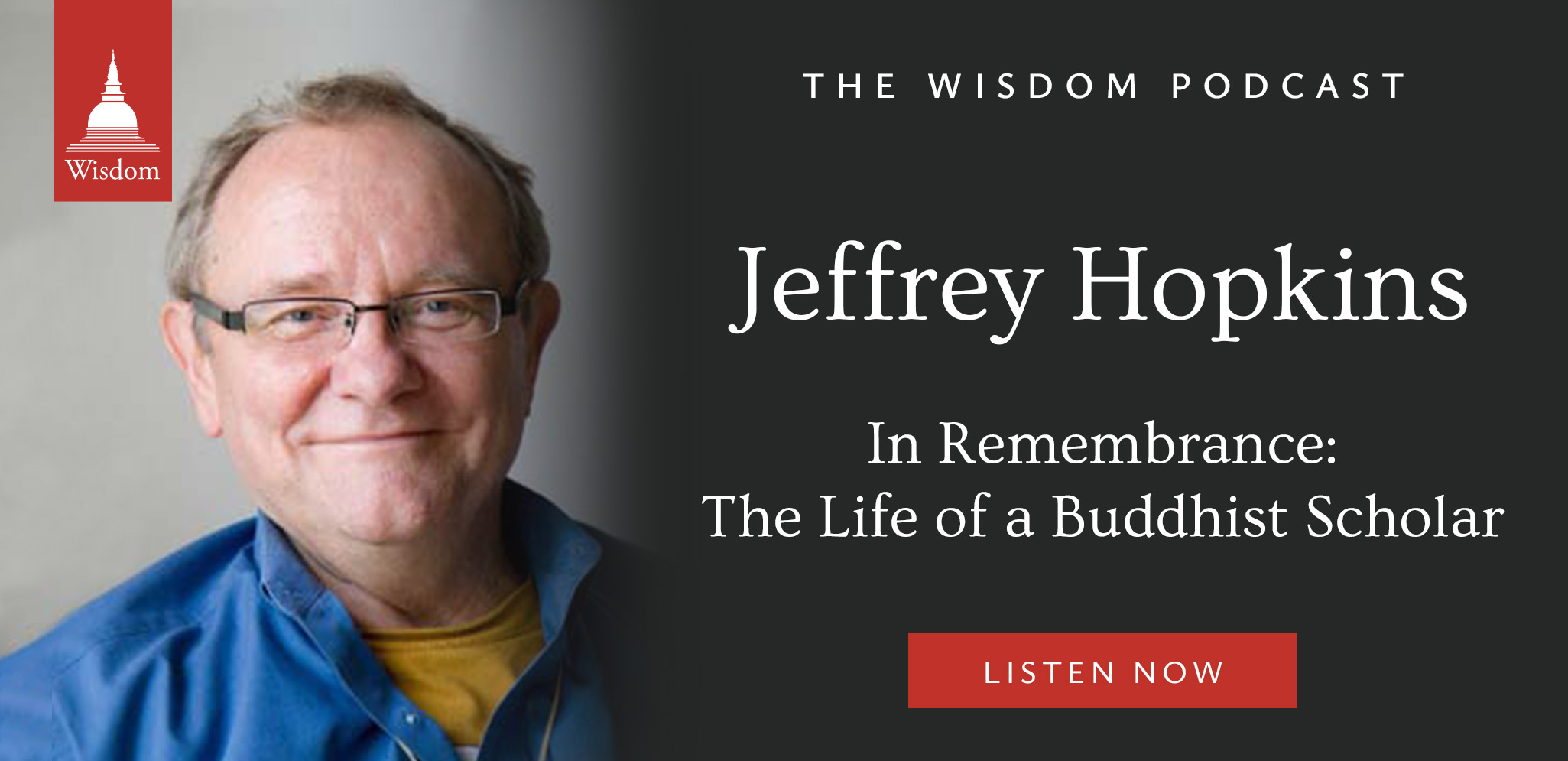
Jeffrey Hopkins: In Remembrance: The Life of a Buddhist Scholar (#190)
Posted
This special rerelease episode of the Wisdom Podcast features Jeffrey Hopkins. Jeffrey started meditating while at Harvard and then, inspired by Thoreau and W. Somerset Maugham, spent time in a cabin in the woods in Vermont. He was Professor Emeritus of Tibetan Buddhist Studies at the University of Virginia, where he taught Tibetan Studies and Tibetan language for more than thirty years. He received a BA magna cum laude from Harvard University in 1963, trained for five years at the Lamaist Buddhist Monastery of America (now the Tibetan Buddhist Learning Center) in New Jersey, and received a PhD in Buddhist Studies from the University of Wisconsin-Madison in 1973. From 1979 to 1989 he served as His Holiness the Dalai Lama’s chief interpreter into English on lecture tours in the U.S., Canada, Southeast Asia, Great Britain, and Switzerland. He has published numerous books, including Meditation on Emptiness, a seminal work of English language scholarship on Tibetan Madhyamaka thought, as well as translations of works by Tsongkhapa, Dolpopa, and His Holiness the Fourteenth Dalai Lama. At the University of Virginia, he founded programs in Buddhist Studies and Tibetan Studies and served as Director of the Center for South Asian Studies for twelve years. Sadly, Jeffrey Hopkins passed away on July 1, 2024, at the age of 83. Prior to his passing, Jeffery was working with Wisdom to deliver an updated edition of Meditation on Emptiness with new forwards from His Holiness the Dalai Lama and Donald S. Lopez Jr. This edition is scheduled for release in 2025 and is available for preorder now.
“Throughout the course of his remarkable career, Prof. Hopkins translated over fifty books, and it was an especially great honor for Wisdom to publish his groundbreaking book Meditation on Emptiness back in 1983. In addition to his extensive body of written work, he was also a mentor to a generation of Tibetan Buddhist scholars. His legacy thus lives on not only through his many books but also through countless students worldwide. We join the Buddhist community of scholars and practitioners who are reflecting on Prof. Hopkins’ life and work with both deep regret for this great loss and immense gratitude for his invaluable contributions. Wisdom celebrates Jeffrey‘s amazing contributions, certainly to our own success, but even more so to the spiritual development of the human community. He will be dearly missed and not soon forgotten.” —Daniel Aitken, Wisdom Publications CEO and Publisher
In this episode, Daniel and Jeffrey discuss:
- his process for developing various meditative practices without any formal knowledge of Buddhism;
- his experience with Geshe Wangyal and Geshe Sopa in Madison, Wisconsin, and how these two great teachers inspired him to begin delving into the intellectual exercise of Buddhist philosophy and guided him in his study and practice;
- how he began translating for the Dalai Lama, and how working with the Dalai Lama influenced Jeffrey’s thinking and translation;
- his thoughts on emptiness and the challenging experience and practice of having Lyme Disease; and
- much more!
Mentioned in this episode:

Remember to subscribe to the Wisdom Podcast for more great conversations on Buddhism, meditation, and mindfulness. And please give us a 5-star rating in Apple Podcasts if you enjoy our show—it’s a great support to us and it helps other people find the podcast. Thank you!
